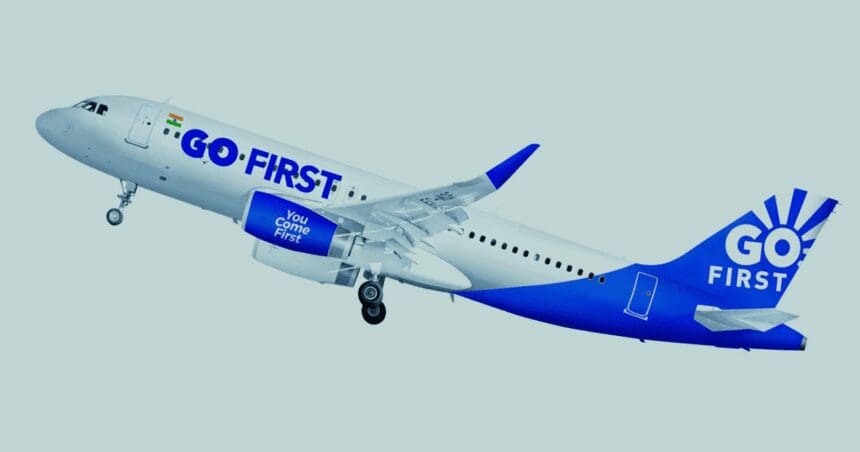Introduction: Jindal Power’s Twist in the Tale
In an unexpected turn of events, Naveen Jindal-backed Jindal Power Ltd (JPL), the sole suitor in the takeover bid for Go First, has thrown a curveball by deciding not to submit a bid, as reported by Reuters. With the deadline for takeover bids looming on Tuesday, this decision has raised eyebrows and added a new layer of complexity to the crisis-ridden narrative of Go First.
In the fast-paced world of corporate takeovers, the saga surrounding Go First has taken an unexpected turn. Jindal Power Ltd (JPL), initially the beacon of hope for the beleaguered airline, is now stepping back from the bidding fray. Let’s delve into the intricacies of this development.

Jindal Power’s Expression of Interest (EOI)
Jindal Power emerged as the lone suitor willing to take over Go First, a struggling airline that filed for voluntary insolvency in May 2023. The deadline for takeover bids looms, set to end on Tuesday, November 21. JPL, known for its prowess in the power generation sector, filed its Expression of Interest (EOI) just last month.
Decision Not to Bid
Despite being the sole contender, Jindal Power has chosen not to proceed with a bid, as reported by Reuters. This surprising decision raises questions about the future of Go First and the expectations creditors had pinned on JPL for the airline’s revival. The reasons behind Jindal Power’s withdrawal will undoubtedly have ripple effects on the struggling carrier.
Also Read: Navigating the Storm: X’s Legal Battle with Media Matters Unveiled 23
Financial Crisis of Go First
Go First finds itself in the midst of a financial quagmire, with a staggering debt totaling $785.6 million. Creditors, including the Central Bank of India, Bank of Baroda, IDBI Bank, and Deutsche Bank, had looked to Jindal Power as a beacon of hope for rescuing the airline from its dire straits.
Top Creditors of Go First
The major creditors in this unfolding drama include esteemed financial institutions such as the Central Bank of India, Bank of Baroda, IDBI Bank, and Deutsche Bank. The fate of Go First is closely intertwined with the decisions and strategies of these financial giants.
Also Read: Unraveling the Byju’s Controversy: A Deep Dive into the Rs 9,000 Crore FEMA Violation Allegations
Purpose of EOI
The Expression of Interest submitted by Jindal Power was not just a formality; it was a crucial step in assessing the valuation of Go First and gaining access to the company’s vital data. However, after thorough evaluation, JPL has opted not to proceed with a bid, leaving creditors and industry observers in a state of anticipation and uncertainty.
Legal Issues with Go First’s Lessors
Complicating matters further, Go First is entangled in a legal battle with its lessors. The moratorium imposed by the courts has prevented lessors from repossessing planes, adding a layer of complexity to the airline’s already challenging situation. The legal tussle adds another dimension to the intricacies surrounding Go First’s fate.
Banks Evaluating Collateral
In the midst of this corporate drama, banks are actively evaluating a property held as collateral by Go First. The outcome of this assessment could play a pivotal role in determining the financial landscape for the beleaguered airline and its creditors.
Also Read: Optus CEO Steps Down Amidst Network Outage and Data Breach Crisis 23
Conclusion
In conclusion, the unexpected decision by Jindal Power not to bid for Go First’s takeover has injected a new layer of uncertainty into the airline’s future. The financial struggles, legal battles, and the intricate web of creditors add complexity to the situation. As the deadline for takeover bids approaches, all eyes are on the unfolding developments, leaving stakeholders on edge.
FAQs
Q1: Why did Jindal Power decide not to bid for Go First’s takeover? A1: The specific reasons behind Jindal Power’s decision are not explicitly stated, but it is a significant development that could have implications for Go First and its creditors.
Q2: What is the total debt owed by Go First? A2: Go First faces a total debt of $785.6 million, contributing to its financial woes.
Q3: Who are the major creditors of Go First? A3: The major creditors include the Central Bank of India, Bank of Baroda, IDBI Bank, and Deutsche Bank.
Q4: How does the legal battle with lessors impact Go First? A4: The legal tussle with lessors, exacerbated by a court-imposed moratorium, adds complexity to Go First’s challenges.
Q5: What is the significance of banks evaluating collateral in this situation? A5: Banks assessing collateral held by Go First could influence the financial landscape for the airline and its creditors.




